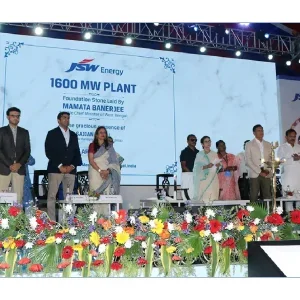
Wood said that the UK Department for Business Energy and Industrial Strategy (BEIS) has placed a $4.6m contract to lead the nuclear research program.
Under the contract, experts from industry and academia are expected to use the collaborative virtual engineering and high-performance computing to demonstrate significant cost savings in the design, construction, operation and decommissioning of nuclear power reactors.
Previously conducted phase 1 of the digital reactor design program has demonstrated a proof of concept by developing a computer-simulated design and management platform covering the whole nuclear life cycle.
The phase 2 of the program is expected to be focused on implementing digital tools in a software framework, utilizing real project applications to demonstrate improved efficiency, enable supply chain collaboration and ultimately deliver a cultural change across the industry.
UK government Nuclear Minister Andrew Stephenson said: “Using state-of-the-art virtual engineering and computing technology to design and build the next generation of nuclear reactors will position the UK at the cutting-edge of low-carbon energy innovation.
“Making simulations in a virtual world allows designers to take virtual risks, reducing design times and demonstrating cost savings across the nuclear life cycle, from design through to decommissioning. This is key to achieving the cost reduction targets in the Nuclear Sector Deal and part of our modern Industrial Strategy.”
For this program, Wood is supported by partners and sub-contractors from industry, academia and science, including EDF Energy, Rolls-Royce, National Nuclear Laboratory, the University of Liverpool’s Virtual Engineering Centre, and the University of Sheffield’s Nuclear Advanced Manufacturing Research Centre.
Wood specialist technical solutions business CEO Bob MacDonald said: “This project has already been highly successful in proving the concept for a new and better way of designing and building nuclear power reactors.
“We’re looking forward to working with BEIS on the next stage and taking a very significant step towards achieving the cost reduction targets proposed by the UK Nuclear Sector Deal.”
Wood said that the Digital Reactor Design program is part of a broader effort to put UK industry at the forefront of developing Generation IV and small modular reactors, which could play a key role in meeting the UK’s future energy needs.






